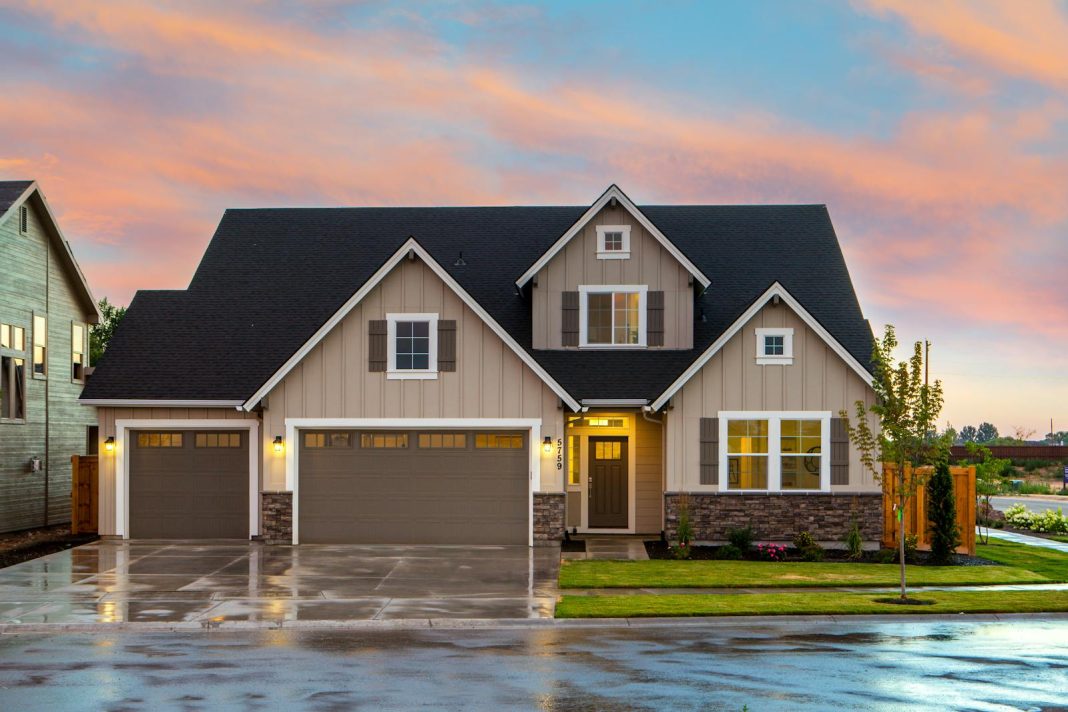What Are Termites?
Termites are little, wood-eating insects that, if left unchecked, may seriously harm your house. Because they can gnaw through wood, flooring, and even wallpaper without being seen, these pests are sometimes called “silent destroyers” because they compromise the structural integrity of structures.
 They thrive in various climates and locations, making them a widespread problem for homeowners everywhere. As outlined by several comprehensive studies and industry experts, including Termite Control in Cincinnati Ohio, preventative measures and early detection play a crucial role in managing these resilient pests.
They thrive in various climates and locations, making them a widespread problem for homeowners everywhere. As outlined by several comprehensive studies and industry experts, including Termite Control in Cincinnati Ohio, preventative measures and early detection play a crucial role in managing these resilient pests.
Signs of Infestation
Early termite infestation detection may save you a lot of money and effort. Some common signs to look out for include hollow-sounding wood, which indicates internal damage and can affect the structural integrity of your home. Another sign is frass, tiny, wood-colored droppings that termites leave behind. Discarded wings near windows and doors also signal swarmers searching for a new nesting site. Mud tubes along your walls provide a humid environment for subterranean termites to travel. Buckling wood or swollen floors and ceilings further signify a severe infestation, where termites have already begun compromising structural components.
Common Types of Termites
While over 2,000 termite species exist globally, a few types could be more problematic in residential settings. Subterranean termites are the most destructive, thriving underground buildings; they build extensive networks that can quickly invade wooden structures. Drywood termites, as the name suggests, infest dry wood and are commonly found in attic framings and furniture.
Dampwood termites prefer moist wood and can be found in areas with high humidity. Understanding the differences between these types helps identify infestations and choose appropriate treatment methods.
Prevention Tips
Prevention is the first line of defense against termite infestations. Ensuring your home is well-ventilated reduces moisture levels, which is crucial since termites thrive in humid environments. Storing firewood away from your house—as far as possible—minimizes the risk of termites migrating from wood piles to your home’s structure.
Sealing gaps and cracks in your foundation can prevent subterranean termites from entering your home. Regularly inspecting wooden structures around your property for early signs of damage or infestation is crucial. Additionally, keeping mulch and other landscaping materials away from the house reduces the chances of termites finding easy access.
Natural Remedies for Control
For those who prefer not to use chemicals, several natural methods can help control termite populations. Orange oil, extracted from orange peels, is toxic to termites when injected into infested wood. Neem oil from the neem tree interferes with termites’ reproduction ability. Another eco-friendly solution involves releasing beneficial nematodes—microscopic worms parasitic to termites—into the soil around your home. According to National Geographic, these natural remedies can be effective but generally work best when used with other termite control methods.
When to Call a Professional
Despite your best efforts, sometimes professional intervention is necessary to eliminate a termite infestation. Professionals have the knowledge, experience, and tools to tackle extensive infestations. An annual examination by licensed pest control firms is functional since early diagnosis and treatment are critical to reducing damage.
Don’t delay seeking professional assistance if you notice persistent signs of infestation or if natural remedies aren’t working. For additional guidelines on managing termites, the EPA provides comprehensive advice on dealing with these pests effectively.
Cost of Termite Treatments
The cost of treating termite infestations varies based on the size of the infestation and the techniques used. On average, homeowners may spend between $300 and $1,000 for professional termite control services. In more severe cases, extensive treatments can escalate to several thousand dollars. While the initial costs may seem high, addressing infestations promptly can prevent far more costly structural repairs in the future.
Frequently Asked Questions
- Q: How quickly can termites eat through the wood?
- A: Termite colonies can eat through a 2×4 piece of wood in about five months, depending on the colony size and type of termites.
- Q: Are termites dangerous to humans?
- A: Although termites are not known to bite people or transmit illness to them if they are not handled, they can seriously harm structures. This indirect danger underscores the importance of early intervention.
- Q: Can I treat termites myself?
- A: DIY treatments, including natural and chemical solutions, are available, but it is often recommended to seek professional help to ensure the infestation is entirely eradicated. DIY methods may not reach the colonies deep within the structure, allowing the infestation to persist or return.
- Q: How can I tell if I have termites?
- A: Signs of termite infestation include mud tubes on exterior walls, hollow-sounding wood, discarded wings near windows and doors, and visible damage to wood structures.
- Q: What attracts termites to a house?
- A: Termites are attracted to moisture, wood in contact with house foundations, and dark, warm spaces. Improper drainage, wood mulch near the house, and cracks in the foundation can also attract termites.
- Q: How often should I have my home inspected for termites
- A: It’s recommended to have a professional termite inspection at least once a year, especially if you live in an area prone to termite infestations.
- Q: What’s the difference between subterranean and drywood termites
- A: Subterranean termites live in the soil and build mud tubes to access wood, while drywood termites live directly in the wood they infest and don’t require contact with the soil.
- Q: How long does termite treatment last?
- A: The duration of termite treatment effectiveness varies. Liquid treatments can last up to 5 years, while bait systems require ongoing maintenance and monitoring.
- Q: Can termites infest a brick house?
- A: Yes, termites can infest brick houses. They can enter through small cracks in the mortar, around windows and doors, or through wooden structures connected to the brick.
- Q: How fast do termite colonies grow?
- A: Termite colonies grow slowly at first, but can expand rapidly once established. A mature colony can contain several hundred thousand to over a million termites and may take 3-5 years to reach this size.
- Q: Do all termites have wings?
- A: Not all termites have wings. Only the reproductive termites, known as alates or swarmers, develop wings during certain times of the year for mating flights.
- Q: Can termites eat through concrete?
- A: Termites cannot eat through concrete, but they can exploit small cracks and gaps in concrete to gain access to wood. They may also build mud tubes over concrete surfaces.
- Q: What’s the most effective termite treatment?
- A: The most effective treatment depends on the type of termites and extent of infestation. Options include liquid treatments, bait systems, and fumigation. A professional pest control expert can recommend the best approach for your specific situation.
- Q: How much does professional termite treatment cost?
- A: The cost of professional termite treatment varies widely depending on the size of the property, type of treatment, and severity of infestation. It can range from several hundred to several thousand dollars, with ongoing maintenance costs for some treatment types.

